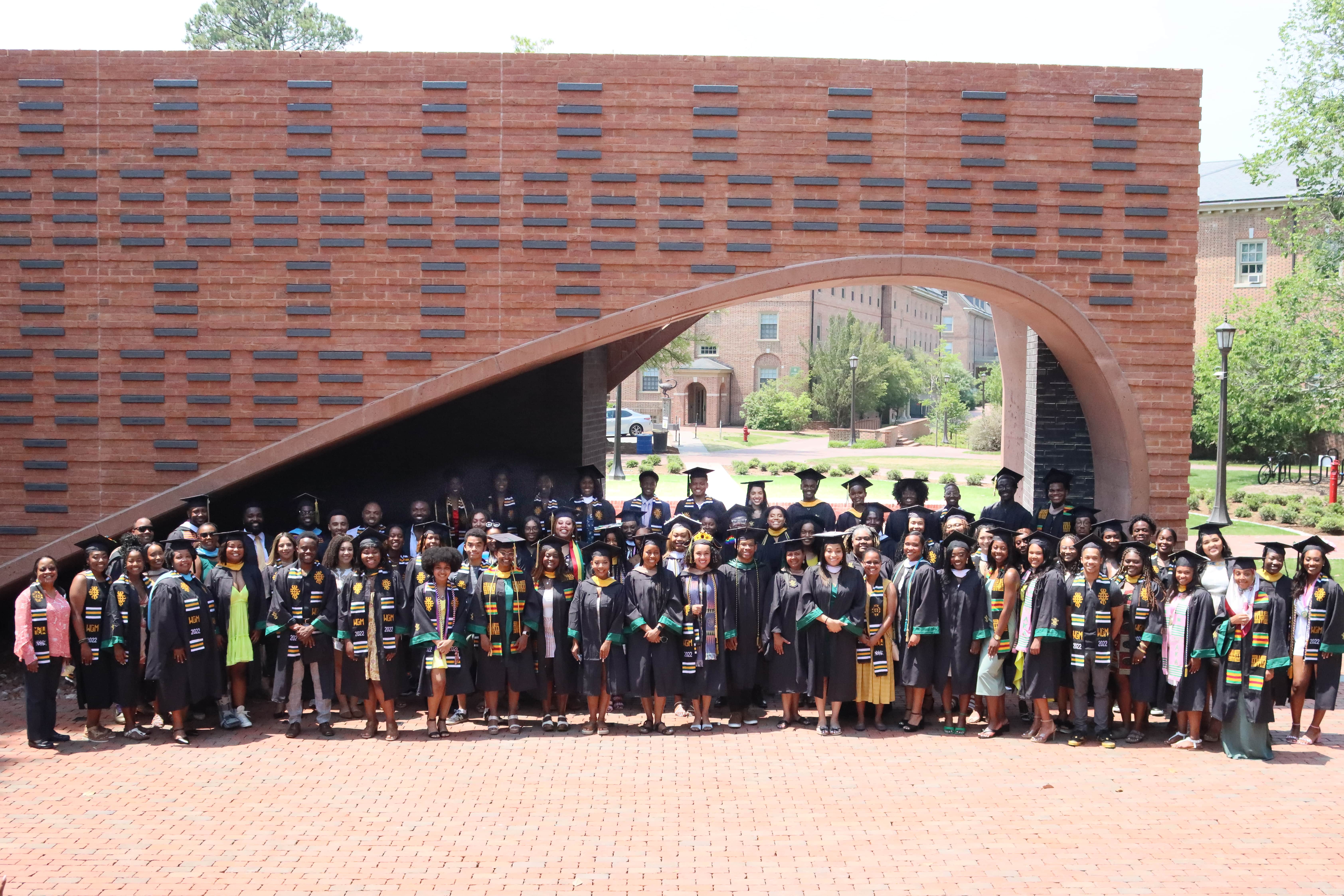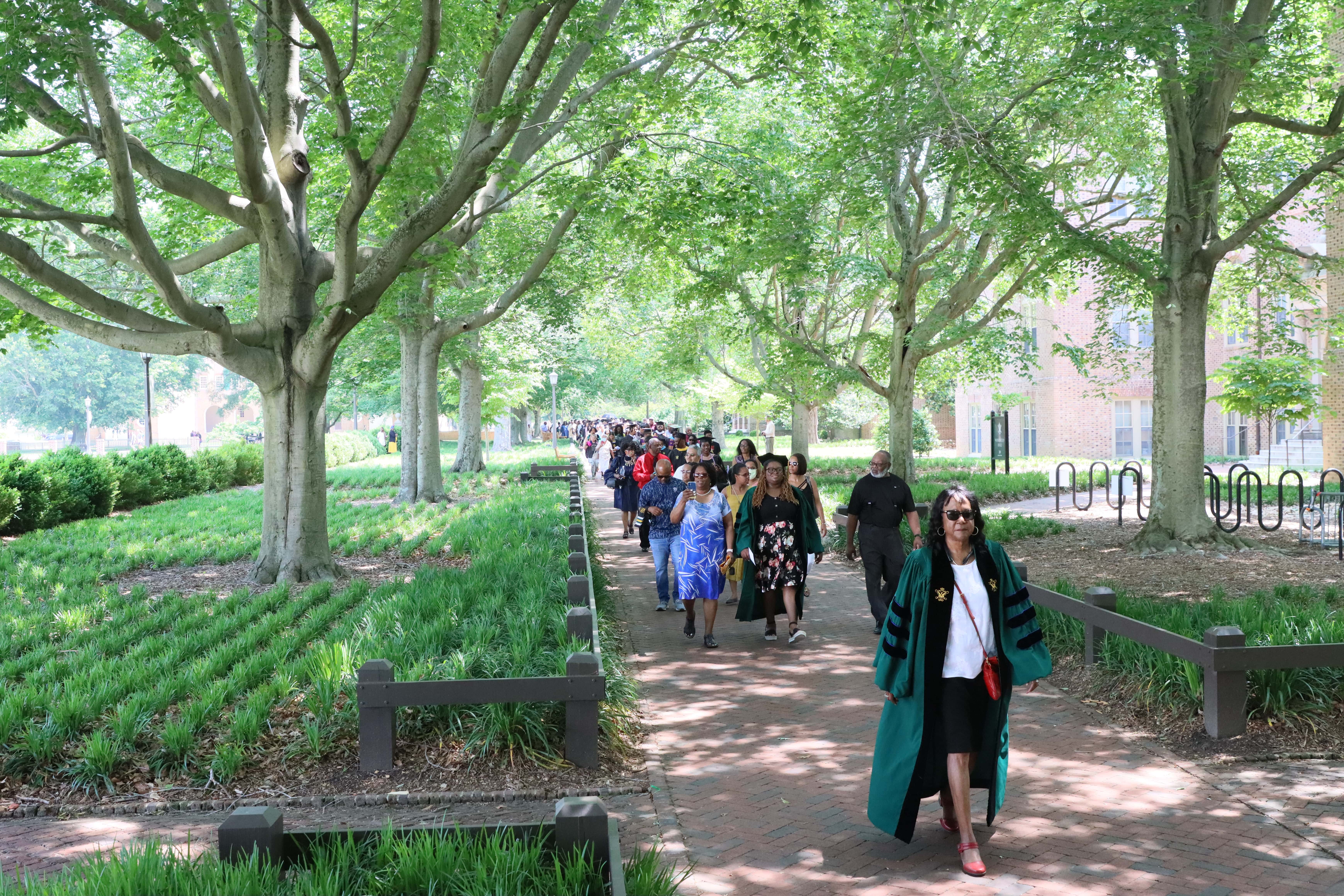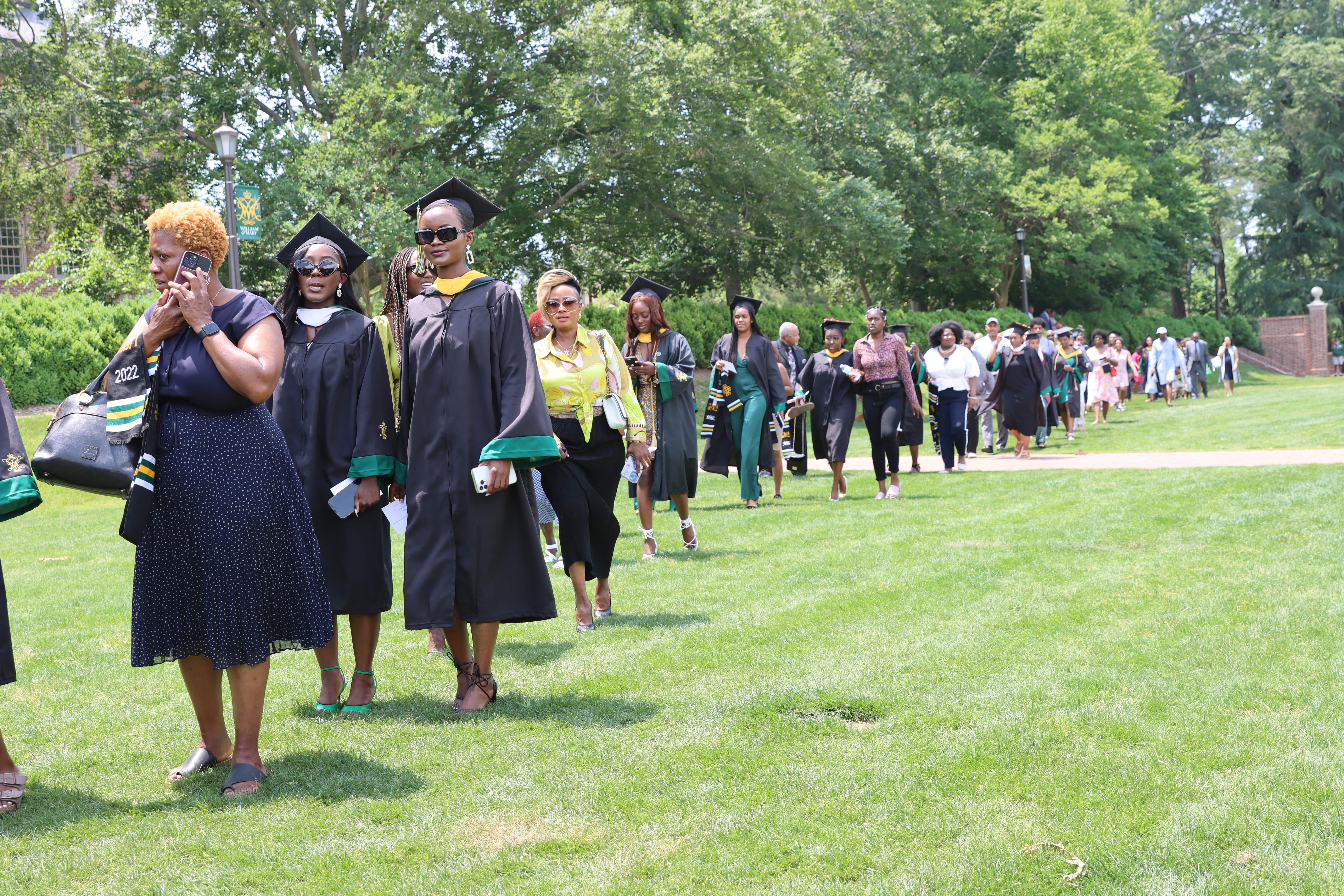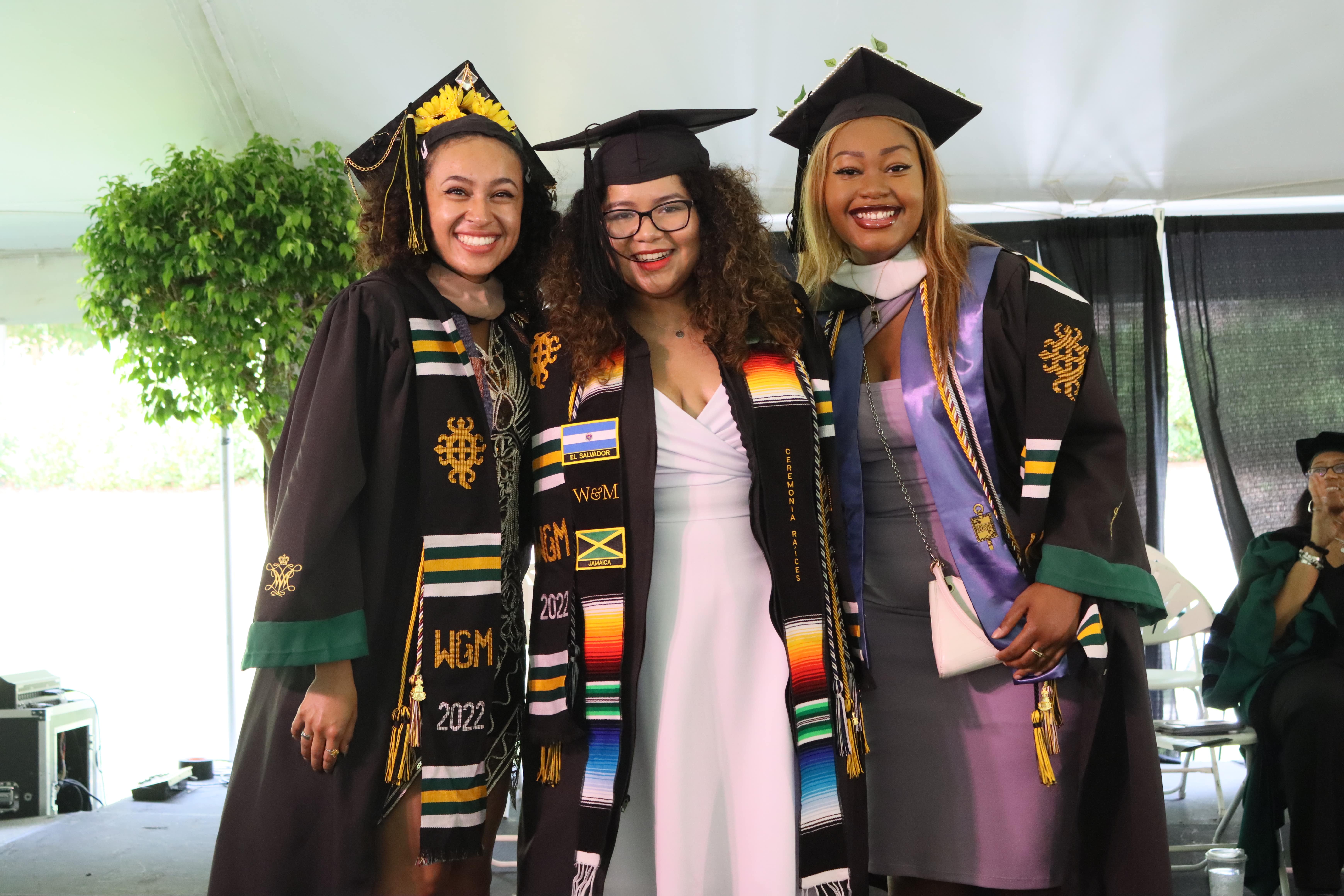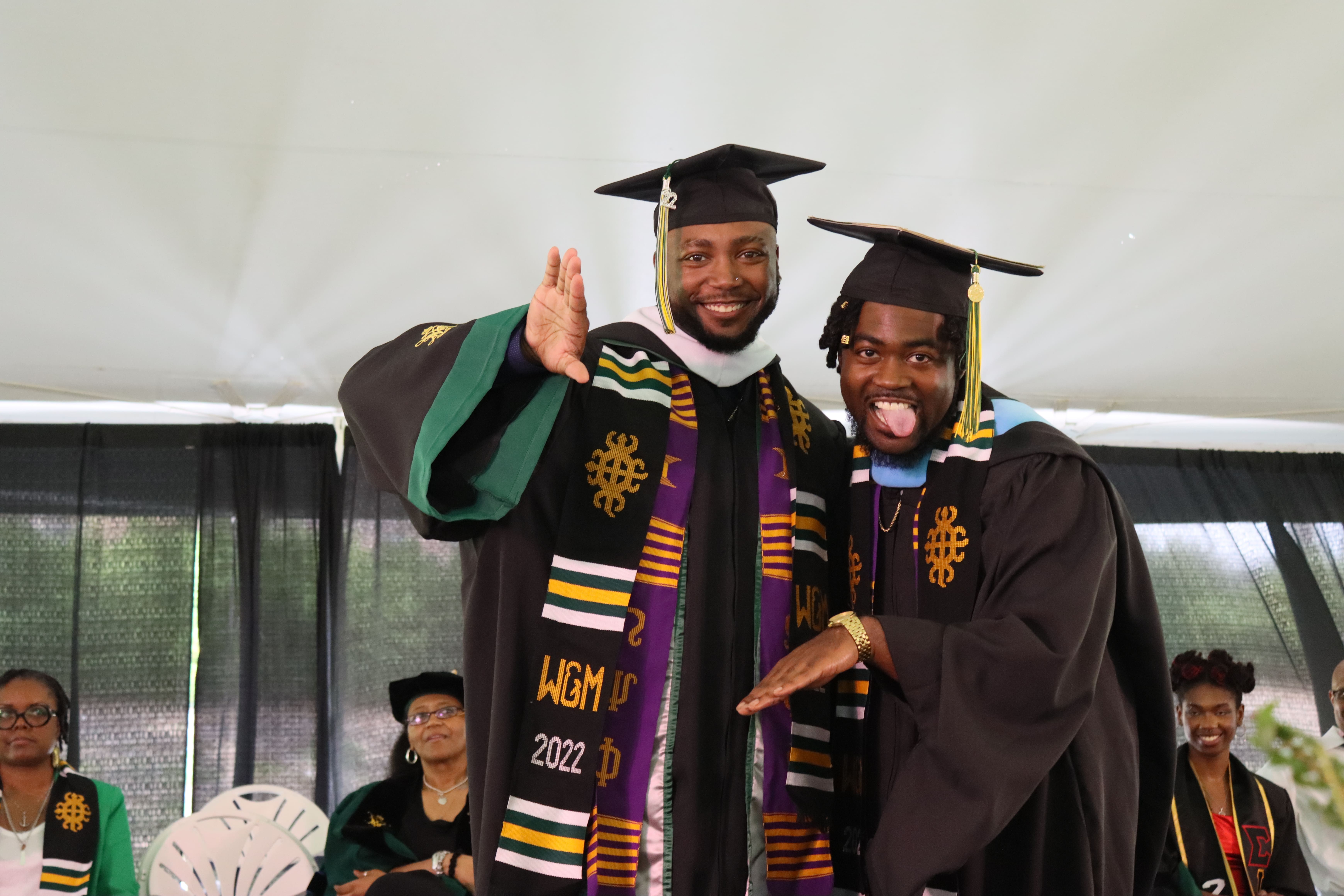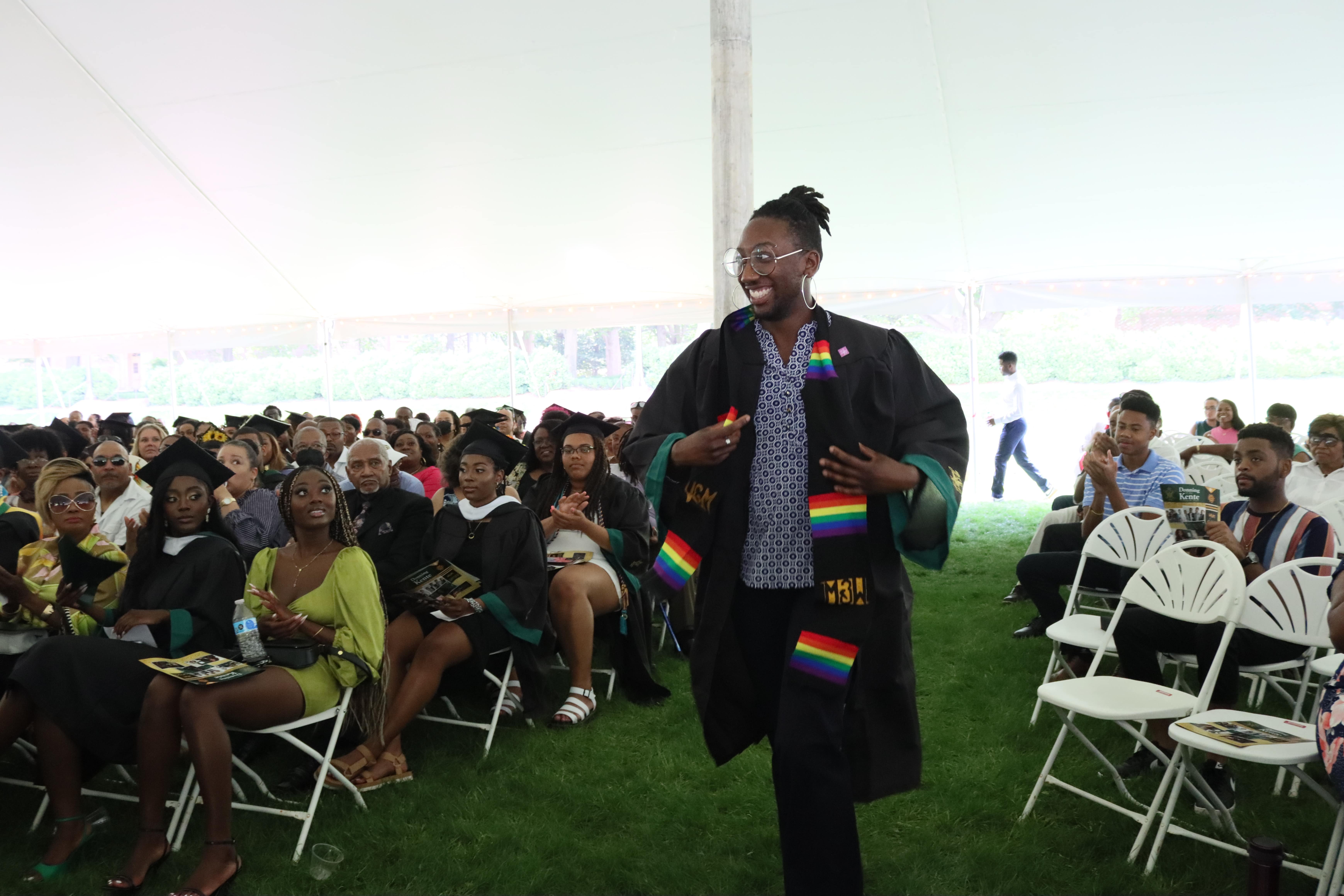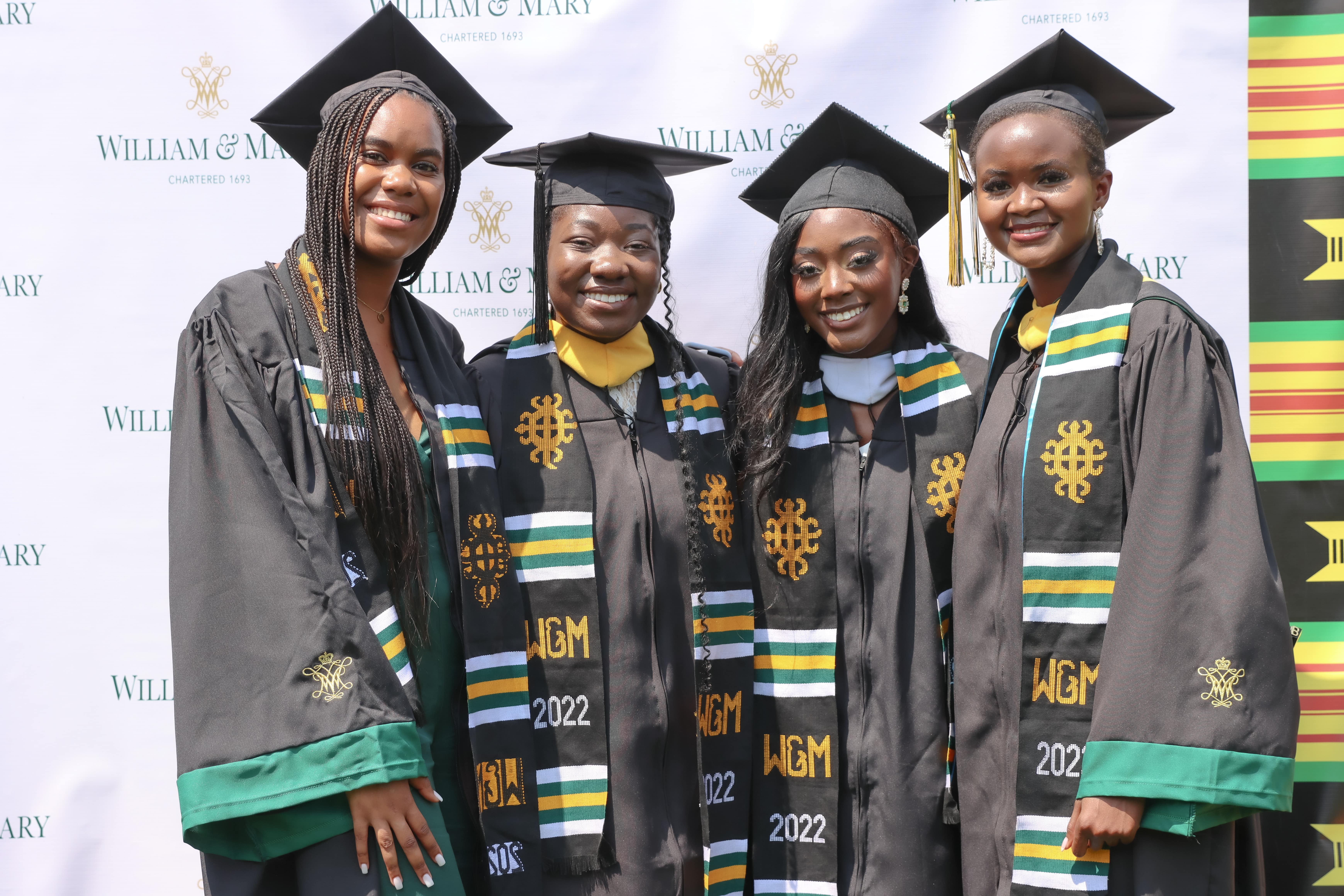By Jajuan S. Johnson, Ph.D.
The Lemon Project team and their community of supporters in Williamsburg and beyond hosted two dynamic summer programs—the Summer Sankofa Genealogy Workshop Series and the Lemon’s Learners Black History Matters Summer Camp. Jajuan Johnson, the Lemon Project Mellon Foundation Postdoctoral Fellow, and Highland’s fellow, Mariaelena DiBenigno, also concluded their appointments with the exhibition “Sharing Authority 2020-2024.” The exhibit showcases their practice with William & Mary students, faculty, staff, and descendant communities and offers a model of doing public history with multiple collaborators. These projects build on the Lemon Project’s mission to “build bridges between William & Mary and African American communities through research, programming, and supporting students, faculty, and staff.”

Lemon’s Learners Black History Matters Camp
Nearly twenty middle school students participated in the 2024 Lemon’s Learners Black History Matters Summer Camp. The team collaborated with the Robert Frederick Smith Explore Your Family History Center at the National Museum of African American History & Culture (NMAAHC). Ori Yarborough and Sterling Warren, Applied Public History Fellows at the NMAAHC, guided students in learning oral history best practices.
In addition to an immersion in local Black history at the W&M Libraries Special Collections Research Center, the learners conducted video interviews with Williamsburg community members Mary Lassiter, Colette Roots, and Johnette Gordon Weaver about their experiences of growing up in Williamsburg. The camp concluded at Hearth: Memorial to the Enslaved with a celebration amongst family and friends for their two-day accomplishments. Jody Allen and Jajuan Johnson donned the program graduates with Kente stoles and commissioned them to seek historical facts on Black history and to share the knowledge.
Summer Sankofa Genealogy Workshop Series
The fourth Summer Sankofa Genealogy Workshop Series drew family historians from across the United States for the virtual meetings. Internationally recognized genealogist Nicka Sewell Smith kicked off the series with the presentation, “We Weren’t Taught How to Smile,” a story of a Black family from the Mississippi Delta who emerged from enslavement by the family of President Andrew Jackson and moved to the front lines of the civil rights movement of the 1960s.
Tasked with finding descendants of sixteen enslaved persons sold by the Trustees of Wake Forest Institute (now University), genealogist Renate Yarborough Sanders presented updates and breakthroughs on genealogical research tied to Wake Forest University’s Slavery, Race, and Memory Project. In “Finding Joseph’s Family: A Model Case of Using Reverse Genealogy to Piece Together a Family Puzzle,” Renate shared the steps that she took and the resources that she used to uncover the afterlife of one family line, bringing its legacy forward from slavery into the mid-twentieth century, one record at a time.
“Transforming Oral History into Documentation: The Early County Massacre,” with genealogist Orice Jenkins, is about history, memory, racial violence, and the process of finding the facts about a 1915 mass lynching in Early County, Georgia. Jenkins presented compelling research and guided attendees on the often tedious process of corroborating oral histories and interrogating historical documents, such as newspapers, court documents, and census reports.
The series was successful because participants were dedicated to honing family history research skills. You can view past genealogical workshops on the Lemon Project YouTube channel.
Sharing Authority at 5 Years: 2019-2024 Exhibition at the Sadler Center
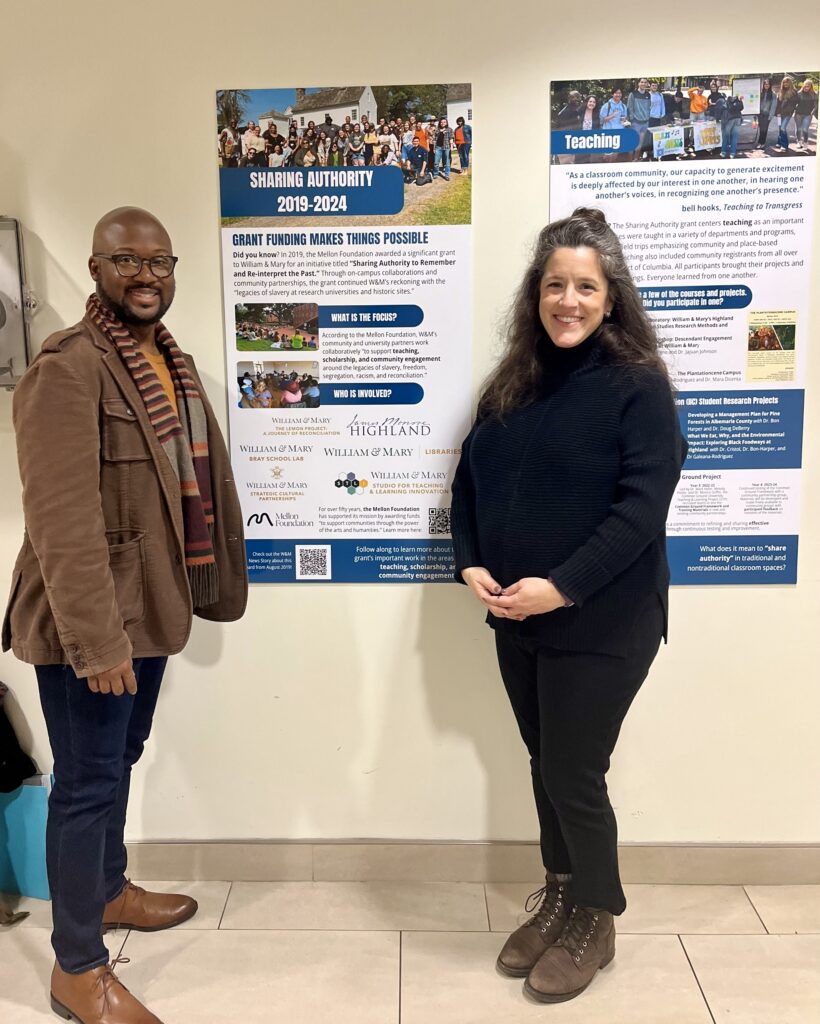

As the Mellon Foundation-funded Sharing Authority to Remember and Re-Interpret the Past ended in July, postdoctoral fellows Mariaelena DiBenigno and Jajuan Johnson shared the grant’s ongoing work with the W&M community. Using the topics of teaching, scholarship, and community engagement, they designed and installed a temporary panel exhibit for the central part of the campus. In February 2024, the six-panel exhibit “Sharing Authority at 5 Years: 2019-2024” opened in W&M’s Sadler Center. It included community and university voices and took a future-forward approach. Though the grant cycle came to a close, the university and its partners continue to address the “legacies of slavery at research universities and historic sites.” As one of the partners, the Lemon Project appreciates the support of on- and off-campus supporters who ensured the success of the Mellon-funded initiative.
Comments closed

